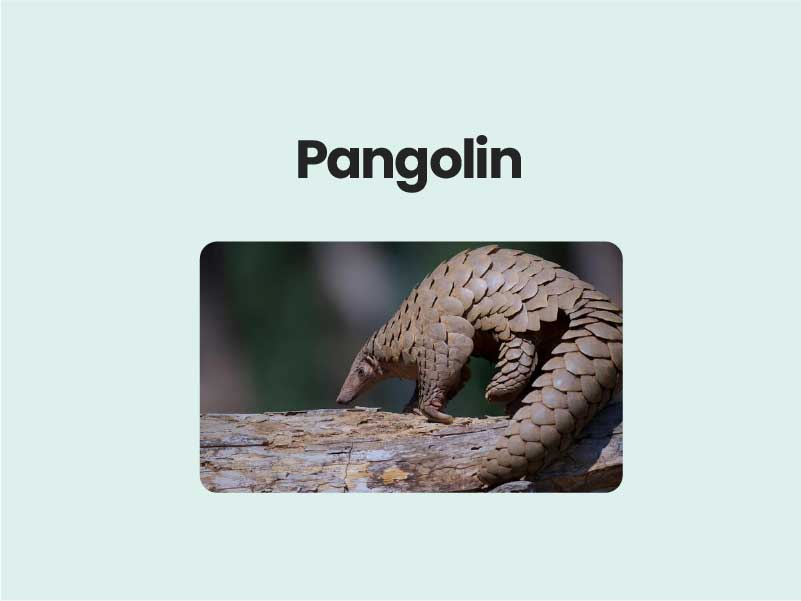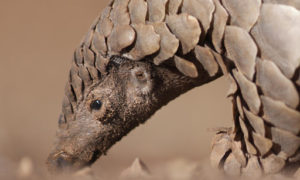Companion@360 → 7 Month programme to sharpen your writing skills → REGISTER NOW

Pangolin
Scientists have, for the first time, radio-tagged the Indian pangolin an endangered animal, that is rarely sighted in forests here. The Indian pangolin, which resembles an ant-eater but dons a thick scaly skin, is hunted for meat and use in traditional Chinese medicine. Researchers say tagging the animal will help understand the habits of the reclusive, nocturnal animal.
- Radio-tagging involves attaching a transmitter to an animal to monitor its movements. Several wild animals — tigers, leopards and migratory birds — have been tagged over decades.
Indian pangolin :
- “The Special Task Force of the Madhya Pradesh Forest Department has been actively working to curb wildlife poaching in the State.
- In recent years, we have successfully busted pangolin-smuggling syndicates that involved poachers and smugglers from more than nine States,” said Rajesh Shrivastav, Chief Wildlife Warden of Madhya Pradesh.
- Pangolins are among the most trafficked wildlife species in the world. The International Union for the Conservation of Nature says these toothless animals have seen a rapid reduction in population.
- The projected population declines range from 50% to 80 % across the genus.
Protection Status:
- Out of the eight species of pangolin, the Indian Pangolin and the Chinese Pangolin are found in India.
- Both these species are listed under Schedule I Part I of the Wildlife (Protection) Act, 1972.
- “In anti-poaching operations, during which pangolin scales are recovered, those animals are already dead.
- Where live pangolins are involved, globally there is about 50% death rate among released pangolins.
- Given that several pangolins are rescued in the central Indian landscape, this new initiative by the Madhya Pradesh Forest Department and the Wildlife Conservation Trust (WCT) is to ensure better survival rates of these released individuals in the wild, and thus have a positive impact on the population of this endangered species,” said Aditya Joshi, wildlife biologist with the WCT, who is overseeing this project.
Chinese Pangolin:
- China accorded the pangolin the highest level of protection and removed the scales of the endangered mammal from its list of approved traditional medicines.
- While China banned pangolin meat in February amid links between wild meat and the transmission of the SARS-CoV-2 virus, they remain sceptical on how seriously the ban on its scales — which are believed to have various health benefits — will be imposed.
- A Chinese state-run publication, says that the State Forestry and Grassland Administration had issued a notice on June 5 upgrading its protection of pangolins and banning all commercial trade of the endangered mammal.
- The move came about after the 2020 edition of the “Chinese Pharmacopoeia” excluded traditional medicines made from four species, and also listed alternatives sourced from species which are not endangered.
World Pangolin Day, celebrated on the third Saturday in February, is an international attempt to raise awareness of pangolins and bring together stakeholders to help protect these unique species from extinction.
Read Also Mukurthi National Park

